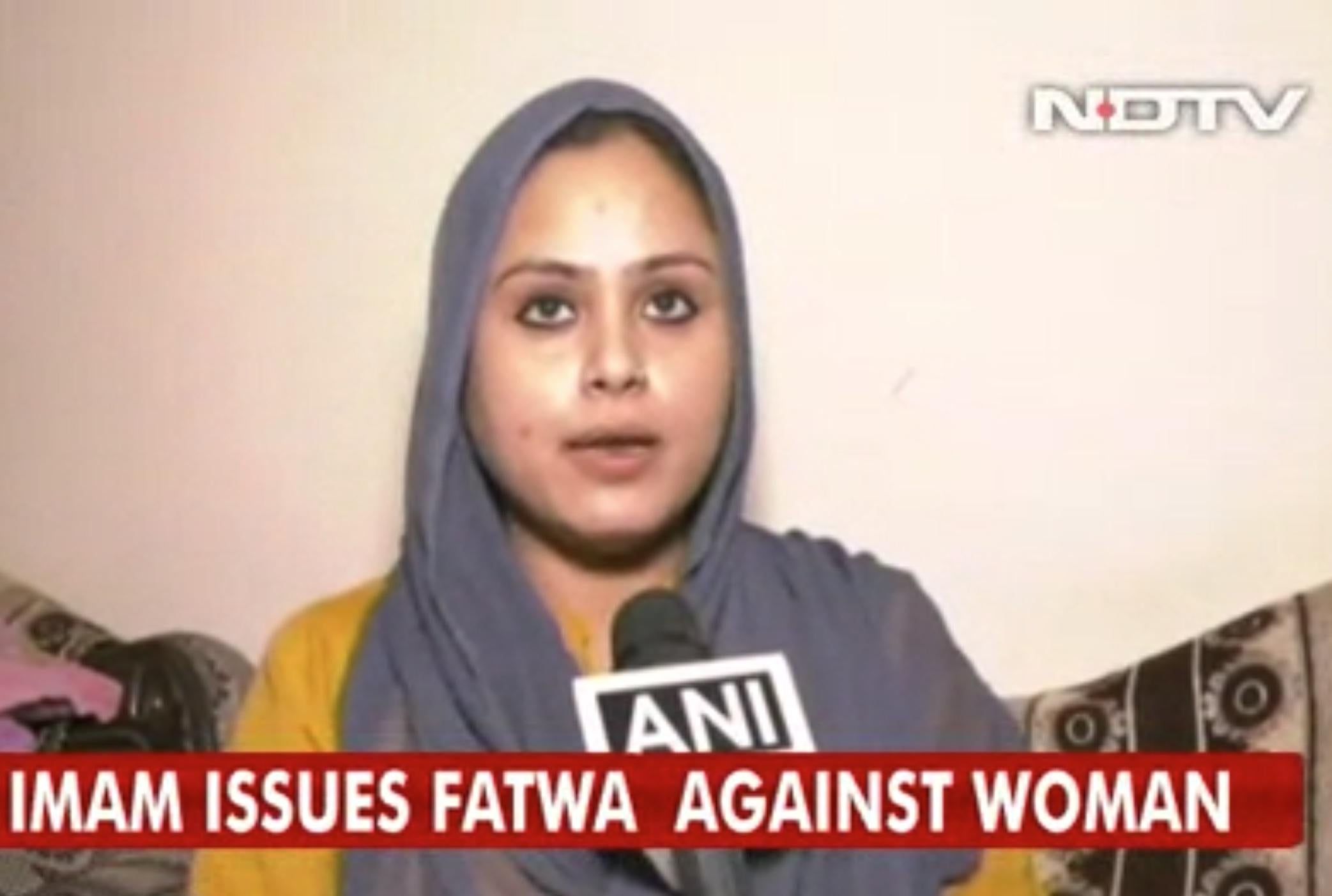Fatwa issued against woman who defied Muslim clerics over 'triple talaq' instant divorce
‘India is a democratic country. No one can ostracise me from Islam. Only Allah can decide who is guilty’

Your support helps us to tell the story
From reproductive rights to climate change to Big Tech, The Independent is on the ground when the story is developing. Whether it's investigating the financials of Elon Musk's pro-Trump PAC or producing our latest documentary, 'The A Word', which shines a light on the American women fighting for reproductive rights, we know how important it is to parse out the facts from the messaging.
At such a critical moment in US history, we need reporters on the ground. Your donation allows us to keep sending journalists to speak to both sides of the story.
The Independent is trusted by Americans across the entire political spectrum. And unlike many other quality news outlets, we choose not to lock Americans out of our reporting and analysis with paywalls. We believe quality journalism should be available to everyone, paid for by those who can afford it.
Your support makes all the difference.A woman who campaigns against the use of “triple talaq” instant divorce among Muslim communities in India has herself been made the subject of a fatwa by a prominent local cleric.
Nida Khan runs an NGO to support women in Bareilly in Uttar Pradesh state who – like her – have been divorced by their husbands simply uttering the word “talaq” three times.
India’s prime minister Narendra Modi has spoken out against “triple talaq” on a number of occasions and, last summer, the country’s Supreme Court banned the concept as “unconstitutional”.
But the practice remains prevalent among some Muslim communities that follow the Hanafi Islamic school of law, who argue that “triple talaq” exists in the Quran and is permissible as part of shariah law.
The issue has reared its head again because the Supreme Court will soon consider the related concept of “nikah halala”, which dictates that a man and woman divorced by “triple talaq” can only remarry if she first marries a second man, consummates the new marriage, and then seeks a new divorce.
Ms Khan’s campaigning against both practices has provoked the ire of Shahar Imam Mufti Khurshid Alam, whose fatwa ordered a social boycott against Ms Khan unless she “apologise” for her NGO work.
“No medicines will be provided if she falls ill. If she dies, no one is allowed to offer ‘namaz’ on her ‘zanaja’ [funeral procession]. She cannot be buried in kabristan [graveyard] after her death,” the imam told the Press Trust of India, quoting the fatwa.
He added: “Nida wants amendment in shariah while Islamic laws were made by Allah. As Nida has been giving statements against Quran and Hadith, she is dismissed from Islam.”
For her part, Ms Khan has remained undeterred. She told news agency ANI that, far from being boycotted, she had the support of “thousands of women”.
“India is a democratic country,” she said. “No one can ostracise me from Islam. Only Allah can decide who is guilty.”
Ms Khan was married to Usman Raza Khan in 2015, but divorced by him using “triple talaq” a year later. Despite her husband being a member of a prominent family of clerics, she contested the matter in civil court and won.
Since the Supreme Court ruling on “triple talaq”, the Indian government has drafted the Muslim Women (Protection of Rights on Marriage) Bill, which would make the practice illegal and punishable by up to three years in jail for the husband.
The bill, which has been passed by the lower house of parliament, the Lok Sabha, specifies that “triple talaq” is illegal in any form – be that spoken, in writing or by electronic means such as email, text or WhatsApp message.
And the new law would give the victim the right to seek a “subsistence allowance” for herself and her children from the husband, as well as taking custody of their children.
Join our commenting forum
Join thought-provoking conversations, follow other Independent readers and see their replies
Comments